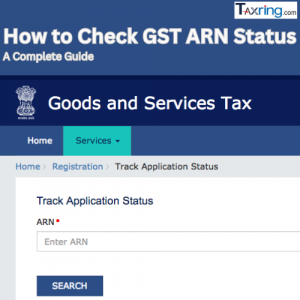
TDS and TCS Rationalization in Union Budget 2025: A Simplified Tax Regime
The Union Budget 2025, presented by Finance Minister Nirmala Sitharaman, introduced several key reforms to simplify India’s tax structure. Among these, the rationalization of Tax Deducted at Source (TDS) and Tax Collected at Source (TCS) stands out as a significant step towards easing compliance and reducing the burden on taxpayers. These changes aim to enhance transparency, reduce litigation, and promote ease of doing business in India. To know more about the best income tax return filing agents near me.
Understanding TDS and TCS
TDS (Tax Deducted at Source) is a mechanism under which tax is deducted from payments like salary, interest, rent, and professional fees before they are credited to the payee. This ensures a steady inflow of revenue to the government and reduces the chances of tax evasion.
TCS (Tax Collected at Source), on the other hand, is collected by sellers while receiving payments for certain goods and services. It applies to transactions involving the sale of motor vehicles, foreign remittances, and certain high-value transactions. Quick and easy solutions for your income tax intimation – start today!
Key Changes in TDS and TCS under Union Budget 2025
The Union Budget 2025 has introduced several reforms to rationalize TDS and TCS provisions, making them more taxpayer-friendly. The key changes are as follows:
1. Higher TDS Thresholds for Senior Citizens and Small Taxpayers
The TDS exemption limit on interest income for senior citizens has been increased from Rs. 50,000 to Rs. 1 lakh. This move aims to provide relief to pensioners and retirees who rely on fixed deposits and savings accounts for income.
- Similarly, the threshold for TDS on rental income has been raised from Rs. 2.4 lakh to Rs. 6 lakh, benefiting small landlords and property owners.
2. Simplification of TCS on Foreign Remittances
- The Budget 2025 has increased the TCS threshold for remittances under the Liberalized Remittance Scheme (LRS) from Rs. 7 lakh to Rs. 10 lakh per financial year. This will make it easier for individuals to send money abroad for education, travel, and medical purposes.
- Additionally, the government has removed TCS on educational remittances funded through bank loans, ensuring students studying abroad do not face undue financial burdens.
3. Decriminalization of TDS/TCS Delays
- Previously, delays in TDS and TCS payments resulted in hefty penalties and legal consequences. The new budget has decriminalized certain minor offenses, reducing compliance stress for businesses.
- This measure will encourage voluntary compliance while ensuring that businesses are not penalized for procedural lapses.
4. Streamlining TDS and TCS for Businesses
- The government has announced a single-window clearance for TDS refunds, ensuring faster processing and reducing cash flow constraints for businesses.
- The compliance burden has been eased by rationalizing TDS rates across various transactions, reducing confusion and administrative costs.
Impact of TDS and TCS Rationalization
The rationalization of TDS and TCS under Union Budget 2025 is expected to bring several benefits:
- Ease of Compliance: By simplifying tax deduction and collection procedures, businesses and individuals can comply with tax regulations more efficiently.
- Higher Disposable Income: Raising exemption limits will leave more money in the hands of taxpayers, boosting consumer spending and economic growth.
- Reduction in Litigation: Streamlined tax processes and decriminalization of minor offenses will lead to fewer disputes between taxpayers and the tax department.
- Encouragement for Foreign Investments: Simplifying foreign remittance rules will make India a more attractive destination for global businesses and students.
Conclusion
The rationalization of TDS and TCS in Union Budget 2025 marks a progressive step towards a more taxpayer-friendly system. By reducing compliance burdens, increasing exemption limits, and streamlining processes, the government has demonstrated its commitment to ease of doing business and financial inclusivity. These reforms will not only simplify tax collection but also encourage voluntary compliance, benefiting both individuals and businesses in India. Searching for tax consultant near you, here are some expert tips and benefits of hiring a Tax Consultant.




